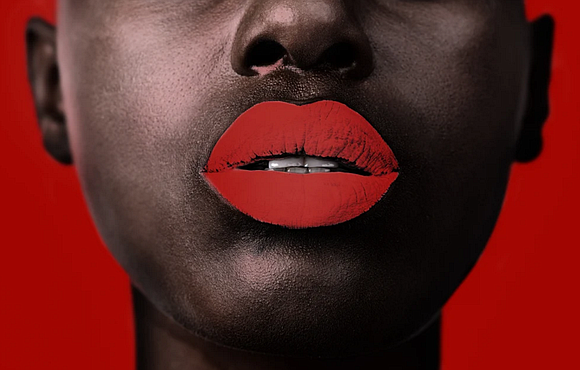This forgotten language is seeing a revival thanks to TikTok
Tut, a centuries-old language once used by enslaved Black people, has found its way to social media.
Style Magazine Newswire | 9/3/2021, 3:22 p.m.

Cia, 20, was scrolling through TikTok one night when she came across a video about a forgotten secret tongue.
She learned this language was called Tut. It was a clandestine form of communication, rooted in English and created by Black people during the 18th century.
Cia said she did not know about the existence of Tut prior to the video. In fact, she never knew African Americans had their own form of communication during slavery.
"I am learning Tut now," said Cia, who asked to only use her first name to avoid jeopardizing future career prospects. "I personally found it easy to learn, but then later found out there were three different dialects — two from the South and one western."
The video Cia found isn’t the only one, nor is she alone as a student of this language. Videos teaching how to speak and write in Tut, and the history behind the language have flooded TikTok in recent months, but Tut’s reach is spreading throughout social media.
On Twitter, one user said, "Wait, so us AA’s are learning Tut language? How do I learn and where do we start."
Another user tweeted, "I just learned AA enslaved people created a language called Tut. I have convinced my family to learn it, and I am incredibly excited to start this journey."
Now Tut speakers are teaching others through Google Classroom and Discord. Instagram pages have shared guides on writing and reading the Tut alphabet.
In 1995, author Gloria McIlwain, published a guide on Tut. McIlwain wrote in an article in American Speech Journal, “I was told by my aunt that her father (who could read and write English) had referred to TUT Language as a 'disguised language' that could have got him killed; thus, as a grown man he refused to speak it.”
In Tut, every letter in the English alphabet becomes a distinct sound. Tut, according to McIlwain's website, may have originated from the word "talk." It’s also been referred to as “Tutnese” and “King Tut.”
Mcllwain’s guide had been one of the few known documents about the language. Maya Angelou's 1969 autobiography “I Know Why The Caged Bird Sings,” includes a reference to Tut, when Angelou describes the frustrations of learning it.
For a number of African Americans, learning Tut has built a connection to their ancestors and community. However, with the resurgence of Tut, some say the language should remain underground. When a user on Facebook shared the Tut alphabet, commenters called for the post to be taken down. “This should not be public. It’s for AFRICAN AMERICANS,” one commenter replied.
Though there are no known restrictions to the language, some say that not all Black people can learn it, only African Americans whose ancestors were enslaved in the U.S. and former colonies.
But as the language continues to travel on social media, is there any way to stop non-African Americans from learning it?
The language's spread on social platforms is a double-edged sword, Cia said. Anyone regardless of their background can learn Tut, if it keeps spreading online, which she said makes the language lose its power. But without its emergence on different platforms, many African Americans "still wouldn’t know we have our own language."
Kiara, a teacher from Missouri, recently picked up Tut after seeing its popularity online. As an African American woman, Kiara tweeted that she doesn't believe the language should be kept hidden from other Black people.
"I don’t think any parts of our heritage should be hidden," she said in a tweet. "Black America has had so much stolen and destroyed. We are just now, at mass, discovering parts of historical culture that belong to us."
Kiara wrote that as an educator, she's able to embrace the cultures of her students, and feels pride in knowing others accept hers as well.
“I’m able to expose my students to parts of my culture in ways that they wouldn’t experience it without me,” Kiara said.
For Kiara, Tut's importance does not become diminished by other Black people learning it but sharing it allows for others to regard it in a new light.
"We deserve and should fight for all aspects of our heritage to be correctly identified and appreciated as ours," Kiara said.
Follow NBCBLK on Facebook, Twitter and Instagram.
CORRECTION (Aug. 17, 2021, 5:56 p.m. ET): A previous version of this article did not reflect that the quotes from Kiara are tweets and were not stated through an interview.



